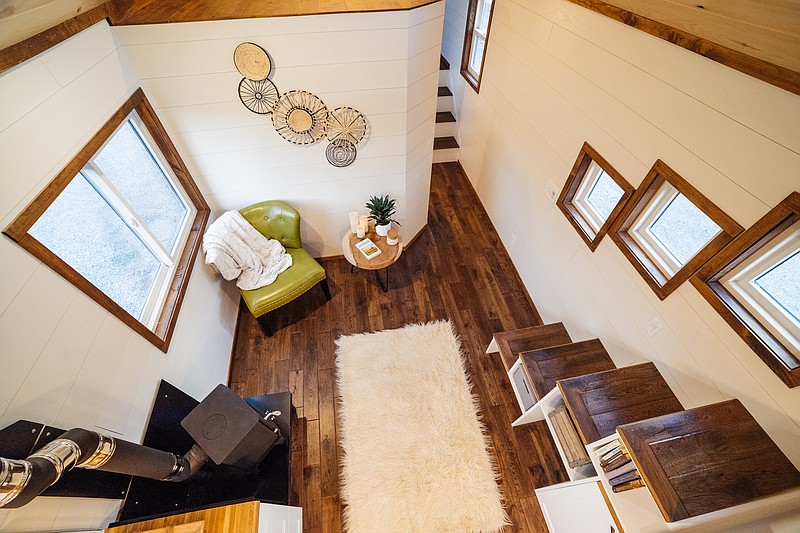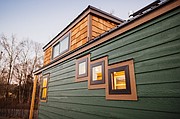People have been forced to refocus and simplify their lives during the coronavirus pandemic, and that may ultimately grow interest in the tiny house market, says Paul Beckmann, co-owner of Wind River Tiny Homes in Apison, Tennessee.
"I hope that there will be some healthy societal shifts where people will want to be more independent and less reliant on certain services," Beckmann says. "Tiny homes can provide a setting for a lifestyle that allows you to focus on the things that are valuable to you instead of the things that distract from that."
The company, founded in 2014, is eyeing an expansion this year that will reduce the average build time for a tiny home from two to three months down to just one month. Wind River has built 40 tiny homes in total, but has a goal of building 40 homes per year by 2022.
The company has seen a steady stream of business in recent months, and even received investment for their upcoming expansion during the height of the pandemic.
"A lot of our customers are people that work remotely, so now you have a new wave of people that are working remotely, that can work anywhere they want," Beckmann says. "The appeal of a tiny home is that you can own your own land and affordably put a really nice dwelling on it, so I think people will be rethinking how they live in a lot of ways after this."
Wind River ships tiny homes anywhere in the continental U.S., and has customers from Maine to California. The 10-person build and design team focuses its efforts on collaborating with customers to ensure each house meets their specific needs.
"If a customer's build is in the shop, we send them pictures every week and make sure they're involved in every step along the way," Beckmann says. "Because if you were building your own home, you'd want to see what stage it's at and what it's looking like, so we want to recreate that experience."
Customers can be involved with the planning process as much, or as little, as they'd like, including the floor plan of the home, color palette, general ambiance, appliances, fixtures, and more.
According to Beckmann, their customers tend to be motivated by two priorities - interest in tiny homes for their aesthetic value and a desire for the simplistic lifestyle that the tiny homes provide.
Wind River Tiny Homes
* History: Founded in 2014 by Travis Pyke, who was interested in promoting sustainability and simplicity.* Co-Owners: Paul Beckmann and Caleb Knowles* Online: windrivertinyhomes.com* Located: Apison, Tennessee
The fully furnished tiny homes built by Wind River range from 12 to 30 feet long and 8.5 feet wide, and the average cost of a house is $60,000.
The tiny homes Wind River produces are usually mobile, but the builders have also applied their tiny home building knowledge to creating even smaller modular buildings called "Elements," which are more permanent spaces than the mobile tiny homes and can serve as a backyard office, yoga studio, or garden shed.
But the tiny home life isn't as simple as just ordering up a house, setting it up and moving in.
There are specific certifications and zoning requirements to consider, with the main difference being the permanence of the home. Each customer's zoning and certification process will vary depending on their municipality, Beckmann says, though the work of organizations like the Tiny Home Industry Association is expanding the acceptance of tiny homes.

